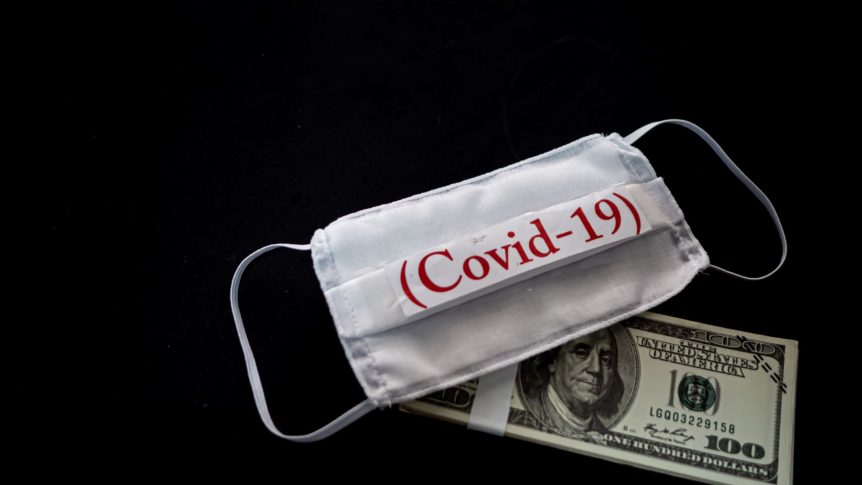The coronavirus and COVID-19 diagnoses in the United States have quickly changed our lives in many ways. While health and public safety are top priority, many of us are concerned about our personal finances, and how we will take care of ourselves and our families. Some of us have lost jobs. Some of us have had our hours drastically reduced. Some of us do not have child care so we cannot go to work. Some of us are ill or caring for someone who is ill. Some of us have seen the value of our investments fall sharply. Some of us own small businesses and whether they close or not, we worry about meeting payroll and other operating expenses and whether we will be able to pay ourselves. And some of us are dealing with a combination of these changes.
The bankruptcy professionals at Essex Richards in Charlotte, North Carolina, have significant experience helping North Carolinians and their families of all walks of life through their financial challenges. We helped our clients navigate the 2008 recession and rebuild. We’ll help our clients survive 2020. It’s what we do every day. And while every situation is different, and there is no one-size-fits-all approach to weathering a job loss, reduction in compensation, illness, business disruption, or recession, we want to share the following big-picture thoughts on North Carolina and federal law as we all navigate these uncharted waters:
- You’re not alone. Millions of Americans are having difficulty paying everyday expenses that they could pay until very recently. We are all helping each other out. There are professionals to help you plan and execute the next steps that are best for you when you need it.
- Take it one day at a time, and prioritize your payments. None of us know what our situation will be in one week, one month or one year. That’s always true, but really hits home now. Try not to get ahead of yourself; instead, focus on food, shelter and transportation for you and your family.
- If you are concerned about servicing your debt, reach out to your creditors and explore your options. Many lenders are offering concessions to their borrowers, particularly for consumer loans such as mortgage payments, car payments and student loan payments. Many credit unions and banks are offering their account holders short-term unsecured “emergency loans” to help make ends meet. There are laws and orders in place to stop or delay foreclosures, evictions and other creditor activity. Do not assume that these laws and orders apply to you; instead, seek specific advice from an attorney or a qualified financial counselor. We have received a lot of calls and e-mails from clients and potential clients who believe that a particular law or order applies to their situation when in fact, it does not.
- Resist the urge to cash out or borrow against your retirement account to pay your debts. Federal law and North Carolina law give broad protection to most assets in qualified retirement accounts for a reason: we, as a society, want you to be able to support yourself during your retirement, and we do not want you to volunteer that money for credit card, medical debt, student loan payments, etc. Most creditors cannot reach the funds in qualified retirement accounts, so you don’t want to take the money out and “expose it” to creditors. For those of us who are not yet retirement age, there may be a tax consequence to an early withdrawal. Further, if you borrow against an employer-sponsored retirement plan and are subsequently terminated (voluntarily or involuntarily), there may also be a tax consequence. For all of these reasons, just don’t do it unless you consult with knowledgeable professionals and come to that decision after obtaining good information about your particular situation.
- Resist the urge to transfer assets to “get them out of your name.” This includes transferring funds to someone else’s bank account for safekeeping. This can be a bad idea for many reasons:
- It may be unnecessary. If you can’t pay your debts on time and in full in North Carolina, we generally don’t take everything from you and make you live on the streets. Instead, federal and North Carolina law generally have a process for allowing people to retain basic property to move forward with their lives.
- It may put you in a worse position. For example, real estate in North Carolina that North Carolina spouses own is entitled to special protection under North Carolina law. If you transfer your interest in the real estate to your spouse, a trust, a business, or any other third party, you may lose that protection.
- You may cause problems for the person you transfer the property to. A transfer of property for less than fair value can be set aside by a court as a “fraudulent transfer.” This is not a crime, but it is a mechanism to undo a transfer of property for the purpose of avoiding creditors. An easy example is transferring a $5000 car to a friend or family member. Unless the friend or family member gives $5000 in value for the car, it’s probably a fraudulent transfer.
- Resist the urge to make unusual payments to your creditors, especially family members or business partners. It sounds weird, but making large payments on debt, catching up on past due payments on debt, or paying a debt in full can backfire for different reasons. If you can afford it, you can and should make regular monthly payments on your expenses and your bills, including the minimum or usual payment on your mortgage, car payment, credit cards, medical debt, payment on tax debt (whether a quarterly estimated payment or pursuant to an installment agreement), and/or student loan debt. Do avoid any large payment to a single creditor, or paying off any single creditor, without first obtaining specific advice.
- Don’t try to figure it out on your own. You probably wouldn’t deal with a medical emergency by reading things on Google or by asking a friend. Likewise, you shouldn’t try to figure out the consequences of, or solutions to, a financial crisis on your own. Some things on the Internet are flat-out wrong; some things are right but don’t apply to you. Don’t scare yourself by trying to figure it out. North Carolina is a pretty good place to live if you can’t pay your debts in full or on time. Further, our various courts are subject to rules and orders that may change their hours of operation, their availability to the public, and substantive legal issues. Let a qualified attorney help you with these issues.
- Don’t go it alone. On a related note, if at all possible, avoid filing anything in court on your own and avoid figuring out to respond to a court action on your own. It can be a lot more expensive to make a mistake without an attorney than it is to obtain good legal advice.
If you live in North Carolina and believe we can help, please call us at 704-377-4300 or send us an inquiry through our website. Most of us at Essex Richards are available remotely, via e-mail, phone, and video app, during our normal business hours (8:30 AM to 5:30 PM, Monday through Friday).
Disclaimer: We are attorneys, but we are not your attorneys and this article does not create an attorney-client relationship. The information in this blog post is provided for general information purposes only, and may not reflect the current law in your jurisdiction. No information in this blog post should be construed or seen as legal advice, nor is it intended to be a substitute for legal counsel on any subject matter.

